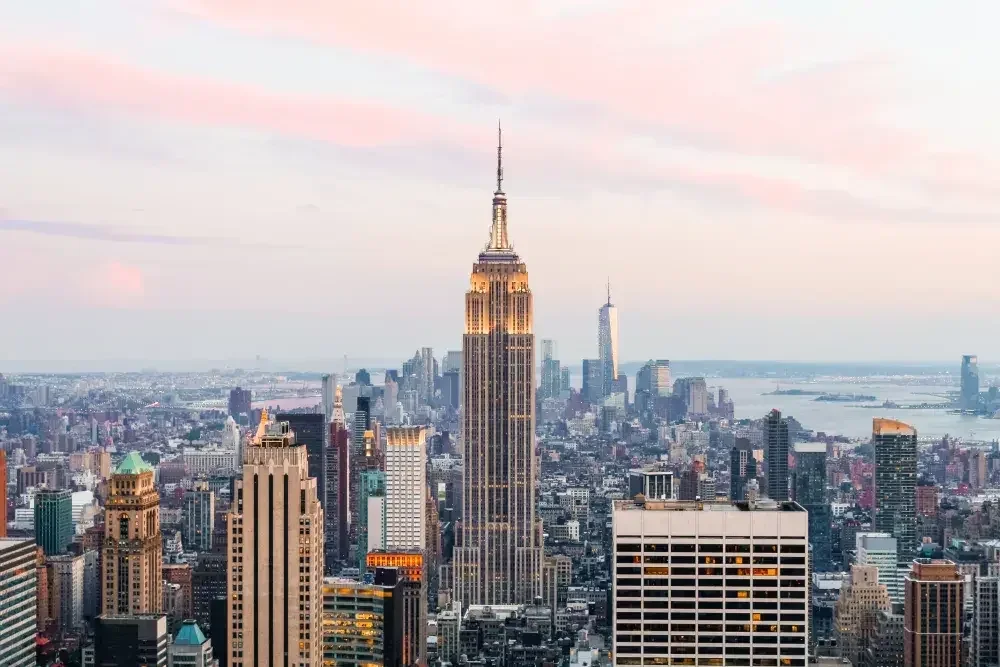If you plan to launch a startup, a major consideration is "where?" Although a Bloomberg feature reported that the Bay Area, the Boston-Washington corridor, and Southern California still attract more than 80% of U.S. venture capital, investment is diversifying geographically.
"I would encourage people to explore the community in which they live, particularly the supportive presence for small business owners," says Bridget Weston, the CEO of SCORE, a nonprofit partner of the U.S. Small Business Administration that provides free mentorship to entrepreneurs. "What tax breaks or laws are there to benefit or support your business? What chambers and networking organizations are available that can help a business learn and grow?"

Founders may also want to look beyond investment numbers to decide location. The major cities that attract venture funding also tend to have the most robust ecosystems of resources for entrepreneurs, but many other places are also supportive and may offer better quality of life for founders and employees.
The following five cities and regions—a mix of traditional tech hubs and emerging startup cultures—are some of the best bets for founders.
The Bay Area
The San Francisco Bay Area remains the dominant location for venture capital investment, receiving more than $120 billion in 2021, 36% of the total amount disbursed across the U.S., according to Bloomberg. The large startup community there means founders can access many resources, such as incubators, networking groups, social clubs, and associations, including Silicon Valley Entrepreneurs, Cuckoo's Nest Club, VLAB, and Silicon Valley American Marketing Association.
"The Bay Area still has the largest concentration of the right people to build the most impactful businesses thanks to multiple top universities paired with some of the best software engineers who have lived here for decades," Nicholas Johnson, the CEO of Orange, an electric vehicle charging platform, says.
Zornitza Stefanova, the CEO and founder of shopping platform BSPK, also listed the Bay Area as a top choice for founders, noting its "diverse, highly educated, and talented people."
New York
The New York metropolitan area follows the Bay in the amount of venture capital investment, having pulled in $50 billion in 2021, or about 16% of the U.S. total, the Bloomberg report said. New York has a thriving ecosystem of resources, meetups, events, and groups and is also home to many accelerators and incubators, such as eLab Cornell University, New York Digital Health Innovation Lab, and NYU Tandon Future Labs.
“In my experience, New York is an ideal city for launching a startup," says Lilian Chen, co-founder and COO of Bar None Games. “It has a large, diverse talent pool, a thriving business ecosystem, and access to a wide range of financial resources."
Boston
Boston has a lot of new ventures linked to alumni of elite local institutions like MIT and Harvard Business School. Founders find support through programs, accelerators, and incubators, like MassChallenge, Harvard Innovation Labs, MIT Bootcamps, and Cogo Labs. Local universities are also investing in innovation, with MIT having committed $1 million to a college of computing focusing on AI and Harvard running Allston Venture Fund.
"Boston is a great place to start a business," Paige Arnof-Fenn, the founder and CEO of consulting firm Mavens & Moguls, says. "We are an academic, health care, and technology center of excellence, so the local economy is strong. There is a thriving entrepreneurial and investor community here."
Austin, Texas
Bay Area- and New York City-based VCs have invested significant capital in Austin over the past decade, and Austin is now the top destination for tech talent relocating from Silicon Valley, according to a LinkedIn report. A study from Crowdfund Capital Advisors also found Austin the best pre-IPO startup city in 2021, and it has strong resources for startups, particularly the Capital Factory.
Austin native Michael Dodd decided to launch a software startup, Planning Hub, after finding support from the strong startup ecosystem in his hometown. "I can honestly say that had Austin not transformed into the startup mecca it is today, I likely would not have had the inspiration and confidence to make such a bold move," he says. "I have met many inspiring founders, mentors, and all-around impressive people."
San Diego
San Diego ranks sixth in the percentage of startup capital it attracts, according to the Bloomberg report, and has been growing its share of the investment pie quickly for years along with cities like Atlanta, Dallas, and Denver. Combined with Los Angeles, it accounts for $34 billion in venture investment, or about 10% of the total. Crowdfund Capital Advisors named it third on its list of best cities for pre-IPO startups, and the area has a host of programs, networking groups, and other resources for startups, such as Startup San Diego, Cool Companies, and SD Tech Hub.
"With its amazing weather, family-friendly atmosphere, and affordable cost of living, San Diego is a perfect place for entrepreneurs like me," Rohan Jawali, the founder of Joist.ai, says. “Plus, with easy access to San Francisco and L.A., I have all the resources and opportunities I need to grow my business successfully."
Choosing where to locate your startup is a big decision, and it's wise to start by figuring out which elements of the startup ecosystem are most important for you.

